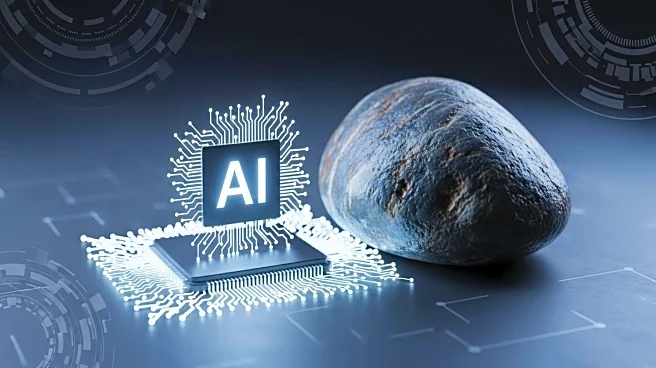What's Happening?
Jim Cramer, a prominent financial analyst, has addressed concerns comparing the current artificial intelligence (AI) boom to the dotcom bubble of 2000. Cramer argues that the current situation is fundamentally different due to the quality and financial robustness of today's leading tech companies. He points out that major players like Nvidia, Microsoft, Meta, Apple, Alphabet, Amazon, and Tesla are well-capitalized and have diversified portfolios, unlike many of the dotcom companies that failed due to poor investments and lack of financial backing. Cramer acknowledges skepticism about the massive investments in AI and data centers, but he believes these companies are equipped to handle potential setbacks. He also notes concerns about Oracle's plans to build data centers with funding from OpenAI, questioning the transparency of the financial sources.
Why It's Important?
The distinction Cramer makes is significant for investors and market analysts who are wary of a potential market crash similar to the dotcom bust. His analysis suggests that the current AI-driven market is supported by financially stable companies capable of absorbing losses and adapting to changes. This perspective may reassure investors about the sustainability of the AI boom, encouraging continued investment in AI technologies. However, Cramer also emphasizes the importance of maintaining a critical view of stock movements and investments, suggesting that skepticism helps prevent market overheating. This balanced approach could influence investor behavior, promoting cautious optimism in the tech sector.
What's Next?
Cramer’s insights may lead to increased scrutiny of AI investments and the financial strategies of major tech companies. Investors might focus on the transparency and sustainability of funding sources, particularly in cases like Oracle's partnership with OpenAI. As AI technology continues to evolve, companies may need to demonstrate their ability to pivot and manage debt effectively. The ongoing development of AI could also prompt regulatory discussions about the ethical and economic implications of AI investments, potentially influencing future policy decisions.
Beyond the Headlines
The discussion around AI investments highlights broader themes of technological advancement and economic resilience. As AI becomes more integrated into various industries, questions about data privacy, ethical AI use, and the societal impact of automation will likely gain prominence. The financial stability of tech giants may also lead to increased market consolidation, raising concerns about competition and innovation. These factors could shape the long-term trajectory of the tech industry and its role in the global economy.










